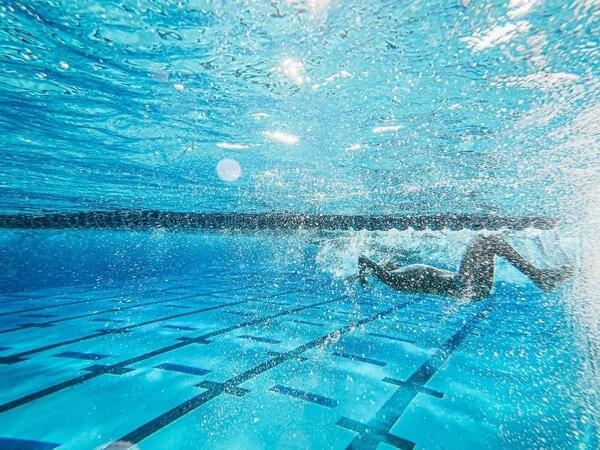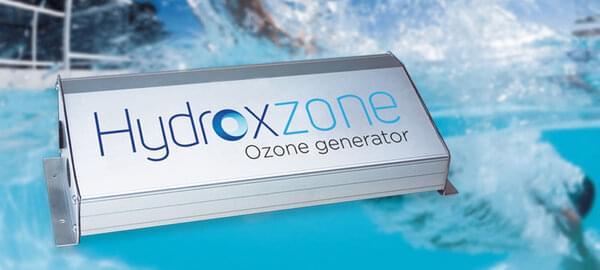
When three oxygen atoms combine, a blue gas known as ozone is formed. Ozone has many uses. It effectively destroys and inactivates bacteria, parasites, and viruses. Therefore, ozone is often used in swimming pools to eliminate water pollutants.
Unlike chemicals added to swimming pools, ozone sanitizes your pool water within the circulation system.
Ozone is only present at very low and safe concentrations once the circulating water is redirected to the pool or spa.
In order to ensure that the water is completely sanitized and suitable for swimming, another chemical, such as chlorine or bromine, is added to the pool.
Ozone cannot be purchased in tanks like other gaseous chemicals since it is unstable and immobile. It needs to be produced locally with an Ozonator or ozone generator.
Let's go over the operation of an ozone generator.

How Does The Ozone Pool Systems Work?
The ozone in the Ozonator sanitises the water as it moves through it before it is pumped back into the pool.
All or the majority of the ozone should be used up before the treated water is returned to the pool. This ensures swimmers do not come into contact with ozone.
Remember that installing an ozone detection system in your pool system as an additional safety measure can also be required by local or state health standards.
The location of your pool's ozone generator is another consideration. Any time an Ozonator is set up and used, it must have access to outside air and cannot be buried.
Corona discharge or UV light are the two most common ways to produce ozone. Let's quickly go through how these generators function.
Application of Ozone in Swimming Pool
1. Swimming pool water pollutants
Swimmers cause water pollution in the swimming pool. As a result, the number and types of swimmers determine how dynamic the pollution is.
Microorganisms, undissolved pollutants, and dissolved pollutants are the three categories in which swimming pool contaminants can be categorised.
2. Essential parts of water treatment systems
Filtration, oxidation, disinfection, and refreshment are the typical components of water treatment systems for swimming pool water.
Filters remove raw contaminants from water, including hairs and plasters. Sand filtering is used to get rid of smaller, insoluble particles.
Coagulation could be used to enhance this elimination method. This makes it simpler to eliminate even the smallest undissolved particles.
Disinfectant uses oxidation to remove dissolved particles. Moreover, disinfectant renders the microbes inactive. Substances that cannot break down require water refreshment.
3. Filtration: Improvement in coagulant and filter effectiveness
Prior to the addition of a coagulant, ozone is pumped onto the filter to enable the best possible utilisation of the ozone mechanism.
A chlorine product is supplied after filtration to maintain a residual concentration in the system. When chlorine and ozone are mixed, less chlorine needs to be added.
UV Ozone Generators vs Corona Discharge
Corona discharge generators are far more advanced than UV and are capable of producing far more ozone.
Ozone is produced when oxygen in a stream of dry air or oxygen passes through a high voltage field known as a corona discharge.
Ozone is produced at the application site.
Swimming Pool Ozone vs Chlorine
Despite the fact that both ozone and chlorine are pool sanitisers, comparing the two is like comparing apples and oranges. It’s best to try employing ozone and chlorine together in your swimming pool. They work very well together.
An Ozonator can provide another benefit to assist you in balancing your pool's water chemistry, for instance, if you use chlorine in an indoor pool. Ozone helps reduce combined chlorine, which can irritate the skin and eyes.
This can significantly enhance the quality of the air in indoor swimming pools.
As an additional disinfectant and oxidizer in swimming pools and spas, ozone complements bromine well. Unlike ozone, bromine breaks down more quickly when exposed to natural or artificial UV radiation.
All in All
Ozone is a type of disinfectant that neutralises bacteria, fungi, viruses, and more.
Ozonation is a popular and high efficiency water purification technique that can remove many impurities and leave no trace.
Residential and commercial pools employ this water purification technique to keep their water clean and safer for use.
For further enquiries regarding ozone swimming pools and ozone pool systems, feel free to ask our water purification solution expert.